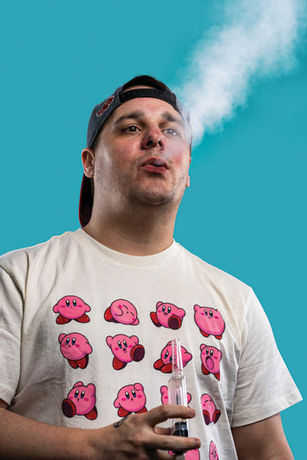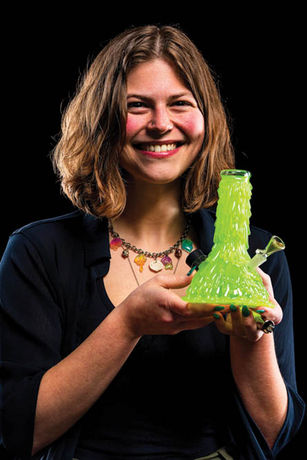On the surface, Nimble Distro seems lighthearted and playful. Whimsical, even.
But much like the Cannabis industry as a whole, underneath the company’s breezy whimsy lives a mission and intention that carries with it an intense gravity.
Founded just outside of Portland, Ore. by longtime friends and business partners Joy Hudson and Marissa Rodriguez, Nimble stands as a company constructed with detail and deliberation to make a change in the world.
It’s a company borne on the wings of huge ambition and commitment to justice and charity – structured in a way that they hope can be a blueprint for how Cannabis companies can be built in the future, in order to build a better, more just world.


A Dream Born Out Of Pain
Hudson and Rodriguez founded Nimble on the heels of exiting their prior company, The Sweet Life Distro. But their commitment to justice came early in life – and they were active in policy and philanthropy long before their current endeavor.
“She was born with a fist in the air, shaking it at the man,” Hudson said of Rodriguez, whose passion for justice she describes with almost reverential regard.
Born into a family of progressive thinkers in Mendocino County, Rodriguez recalls pivotal moments in her childhood that influenced her commitment to activism. One of the earliest was in eighth grade, when she read an article about the CIA funding the Iran Contras by selling crack cocaine for cash on the streets of Los Angeles.
When 2020 hit, the pair were in the midst of an exit from their company, and Hudson was at a complete reset point in her life. It was the perfect time for drastic action.
“Like a lot of beautiful things, it’s born out of pain,” Hudson said. “Marissa and I loved building the company that we built before Nimble, but we often felt like we couldn’t truly make it everything that we wanted it to be. … We paused for a minute and began asking ourselves the really important question of who we want to be.”
Like the entire world, Hudson and Rodriguez were shaken and shaped by the events of that year. The pandemic, the murder of George Floyd, the protests, the gross injustice of it all – it seemed to cast their mission into stark relief.
“These profound moments that were happening in the world were blowing right through us as we were forming the foundation of the company,” Hudson said. “I think that is part of the magic sauce … that we kept being hit by these critical things that just rocked us, and then we’d get back to forming our company and would say, ‘What can we start and do now?’”
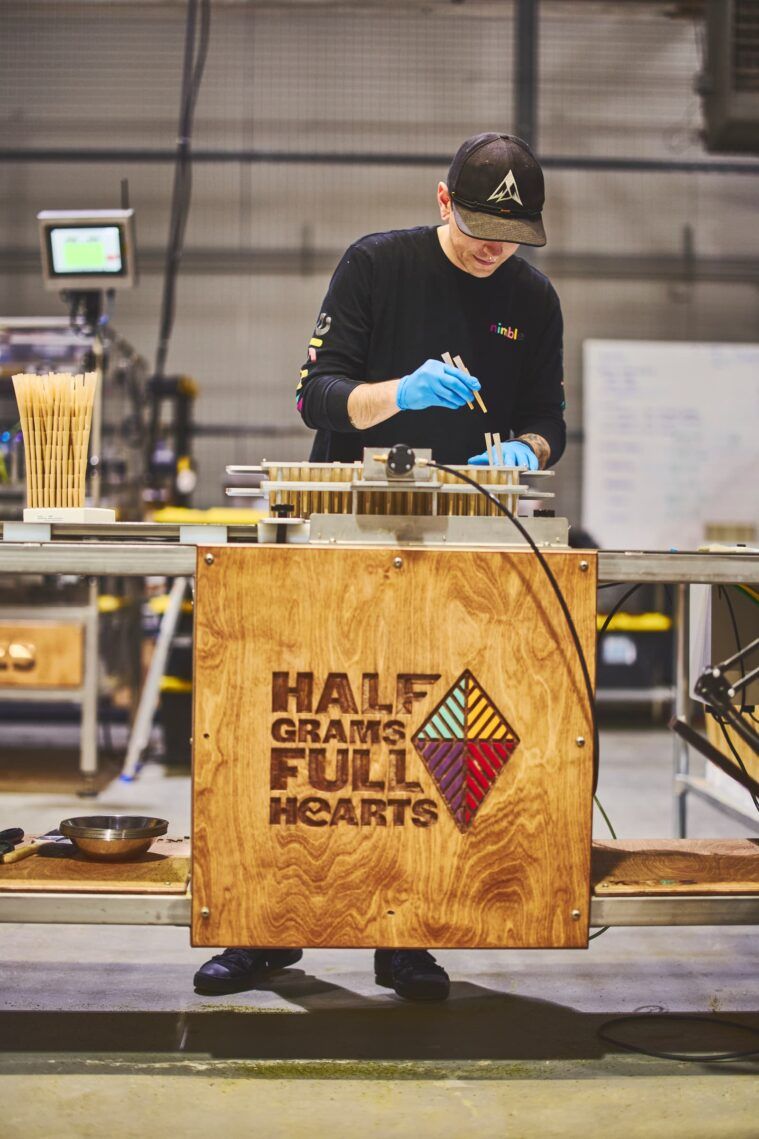
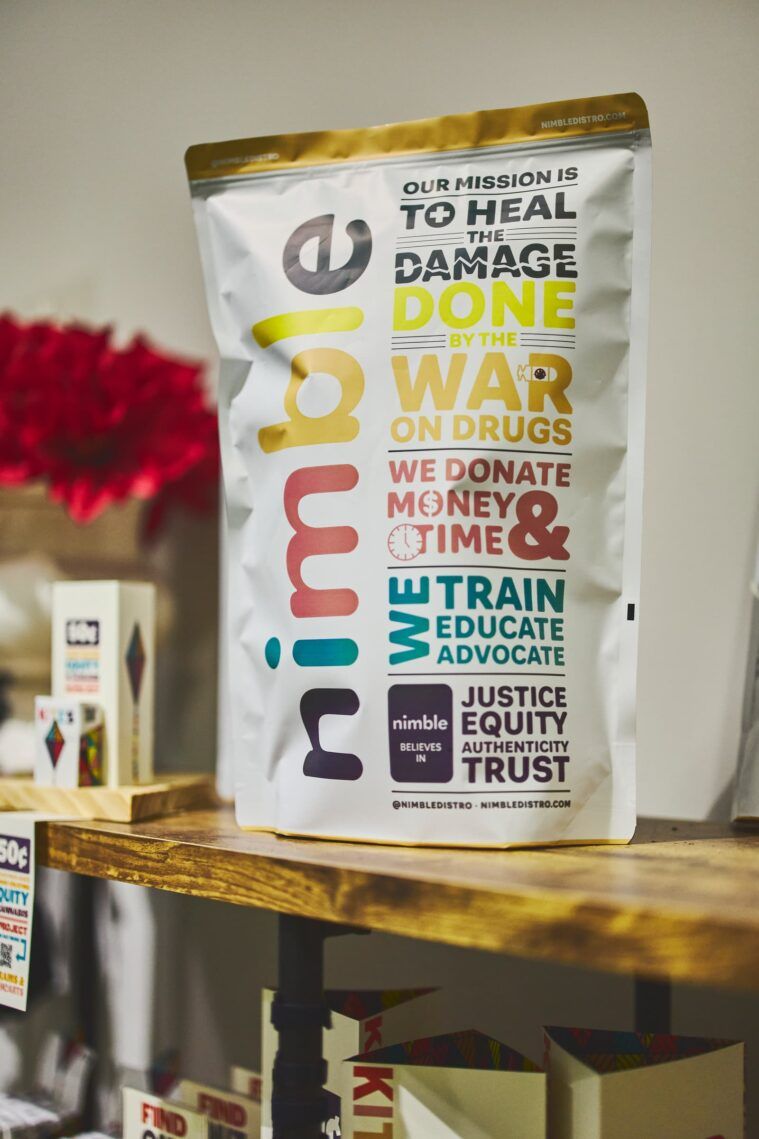
Their privilege as successful entrepreneurs drove them to ask some hard questions.
“What responsibility do we have to everyone? To ourselves, to our families, to the people who work for us, for our vendor clients, and our customers,” Rodriguez asked. “What responsibility do we have to them, especially looking through the lens of the horrific colonial legacy of this country, specifically in Cannabis? That’s the conversation that we were having 18 months ago. Wow, we can do this thing, and if we can do it, we sure as shit better get it right.”
From The Ground Up
The starting point for their mission shone like a beacon on a clear night. Hudson and Rodriguez, two female entrepreneurs in the Pacific Northwest, decided they wanted to fix the world. And they wanted to start with the war on drugs.
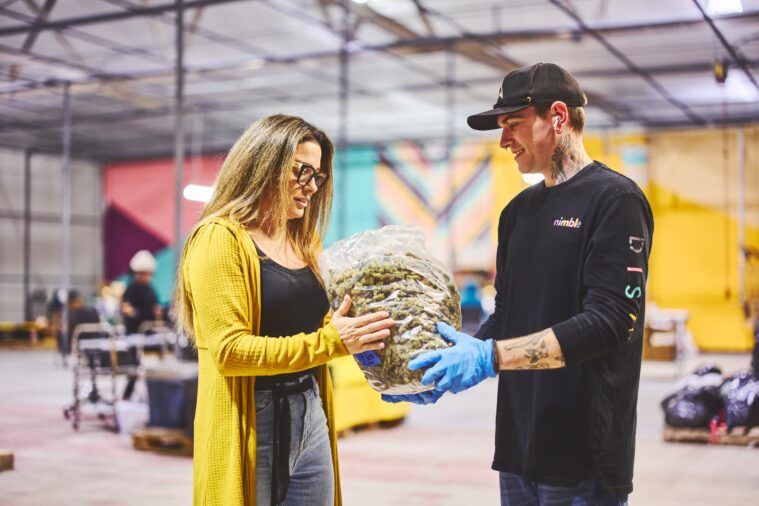
“We want to know that our actions, our business, our intent, our initiatives … are working toward repair,” Rodriguez said. “We have this totally crazy goal of undoing the harm done by the war on drugs. That’s ridiculous that Joy and I are going to undo the harm done by the war on drugs. But it has to be crazy aspirational. You have to set these goals that seem impossible in order to make any progress.”
Moving forward mightily, they designed a number of goals to overlay on top of the core responsibilities of being a wholesale distributor and manufacturer.
The first no-brainer was that they wanted to be a second-chance employer, so they hired consultants who had worked with prisoners and within the system to find the best path forward to build that program – constructing their organizational chart with former prisoners in mind.
Next, they knew they wanted to build their company to not only better the lives of their employees, but also to raise money for organizations that worked to undo the harm done by the war on drugs, specifically the damage to Black and Brown communities.
“Money is influence,” Rodriguez said. “Corporations have more rights than women.” (At this point in the interview, everyone had to take a pause to let the reality of that statement truly sink in.) “It’s tragic, but it’s the reality that we live in. Corporations have rights. If we’re going to be a corporation, how do we turn that money into influence in all kinds of ways? How do we support local orgs and initiatives? How do we support the people who work for us?”
Intentional Impact
To begin with, they started by making sure their company minimum wage was above the local minimum wage, setting the baseline hourly rate at $17 per hour. Then they carved aside 10% of ownership in the company for employee stock options, which are available to all employees.
“We want to go back to the model where employers who employ somebody for their entire career, those people should be able to retire from there. You don’t do that through their actual wages, that’s how they survive,” Hudson said, referring to the choice to offer ownership to the staff.
“Ownership creates an attitude of ownership, which is great for the organization. But there’s also the fact that I just want people to have something,” Rodriguez said.
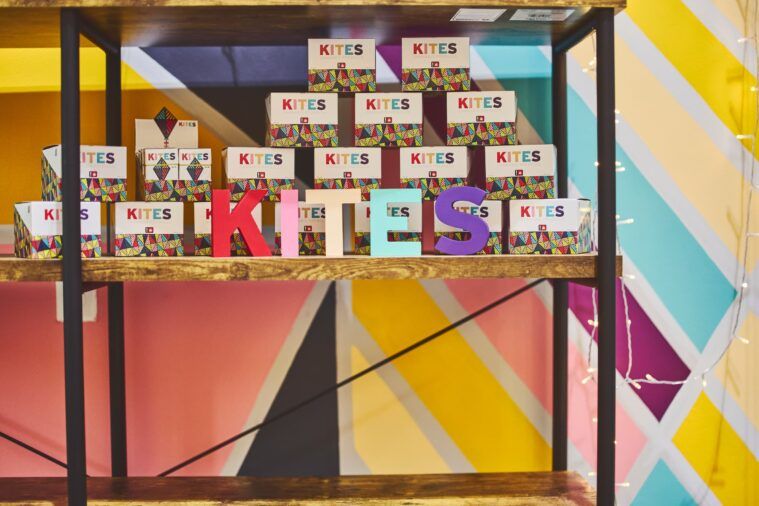
On top of internal care, perhaps the most impactful piece of Nimble’s business comes from its approach to charitable giving. They started by identifying a way to take their flagship brand – colorful pre-roll packs called Kites – and turn it into a revenue generator for good. They give 50 cents from the sale of every pack to NuProject (nuproject.org), a Portland-based organization dedicated to building generational wealth in Black and Brown communities.
“Whenever we’re creating a new product, and we create our cost of goods schedule, we build reparations into the line item as a cost on the product, so that we’re contributing to our cause unit by unit,” Hudson said of their approach. “So literally as the brand is growing, the cause gets more and more and more. It’s built into the early framework. We’re not waiting for profitability. We’re not doing a percentage of profits, because if you wait until that point to consider your giving, it’s a very stressful point … unless it’s a very large number.”
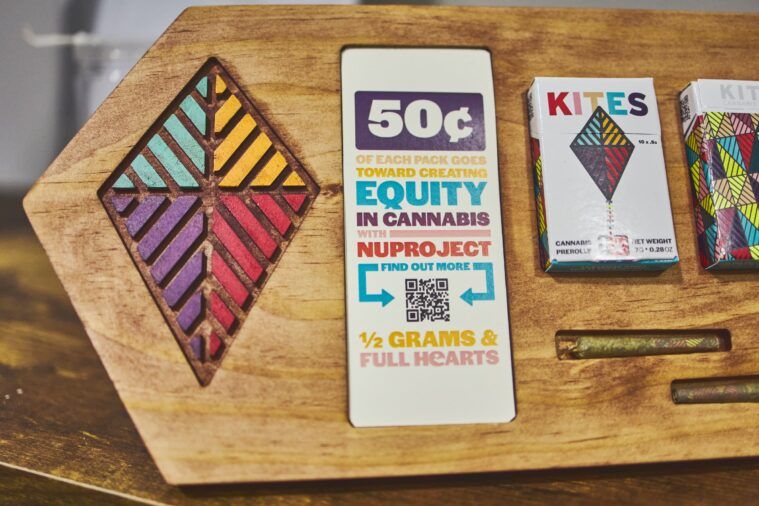
Jeannette Ward Horton, co-founder of NuProject and thought leader on issues of equity and entrepreneurship in the Cannabis community, says that Nimble’s approach has already made a significant difference in the community her organization serves.
“That to me kind of shifts the idea,” Ward Horton said of Nimble’s commitment to giving before profits are calculated. “It’s something that’s nice to do after the fact, but then when times get tight, companies can cut it off. But the way Nimble is doing it, it’s part of their plan. The support is game-changing for us, having a consistent source of funds … It’s hard to express how much the regular support really does mean. Black and Brown-run nonprofits are significantly less funded than their white peers, and they really leaned in. I can’t be more thankful.”
That support adds up to real-world impact, and has contributed significantly to NuProject’s cause.
“We’ve given $2 million to the community,” Ward Horton said about NuProject’s overall impact to date, to which Nimble has contributed significantly. “We’ve spent 486 hours mentoring Black and Brown entrepreneurs, and we couldn’t have done that without Joy and Marissa. 486 hours is a lot of mentoring for the Black and Brown community.”
Nimble isn’t stopping there. Hudson and Rodriguez also will be rolling out a new premium flower pre-roll line called Broomsticks, a witchy nod that will give profits to an abortion access fund.
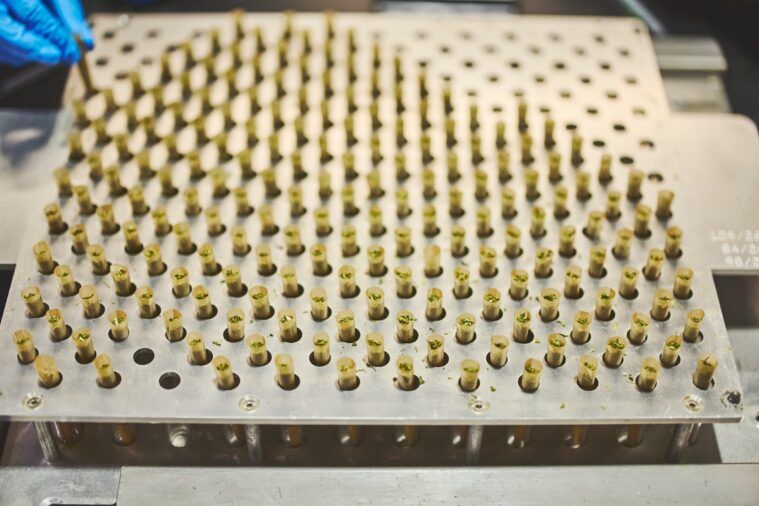
Hudson and Rodriguez are currently finding licensees in other states, and the first thing they look for is an alignment of values – before discussing anything else.
“If a Cannabis company wants to look at how to do this, and how to give back, and make it part of our fabric,” Ward Horton said, “then Nimble is doing it right.”
The reason, for the Nimble team, is clear.
“What’s your legacy? What side of history were you on? You had an opportunity to do something. What did you do? Those are the kinds of questions I ask myself,” Rodriguez said. “What will my grandchildren think of the choices that I made?”



